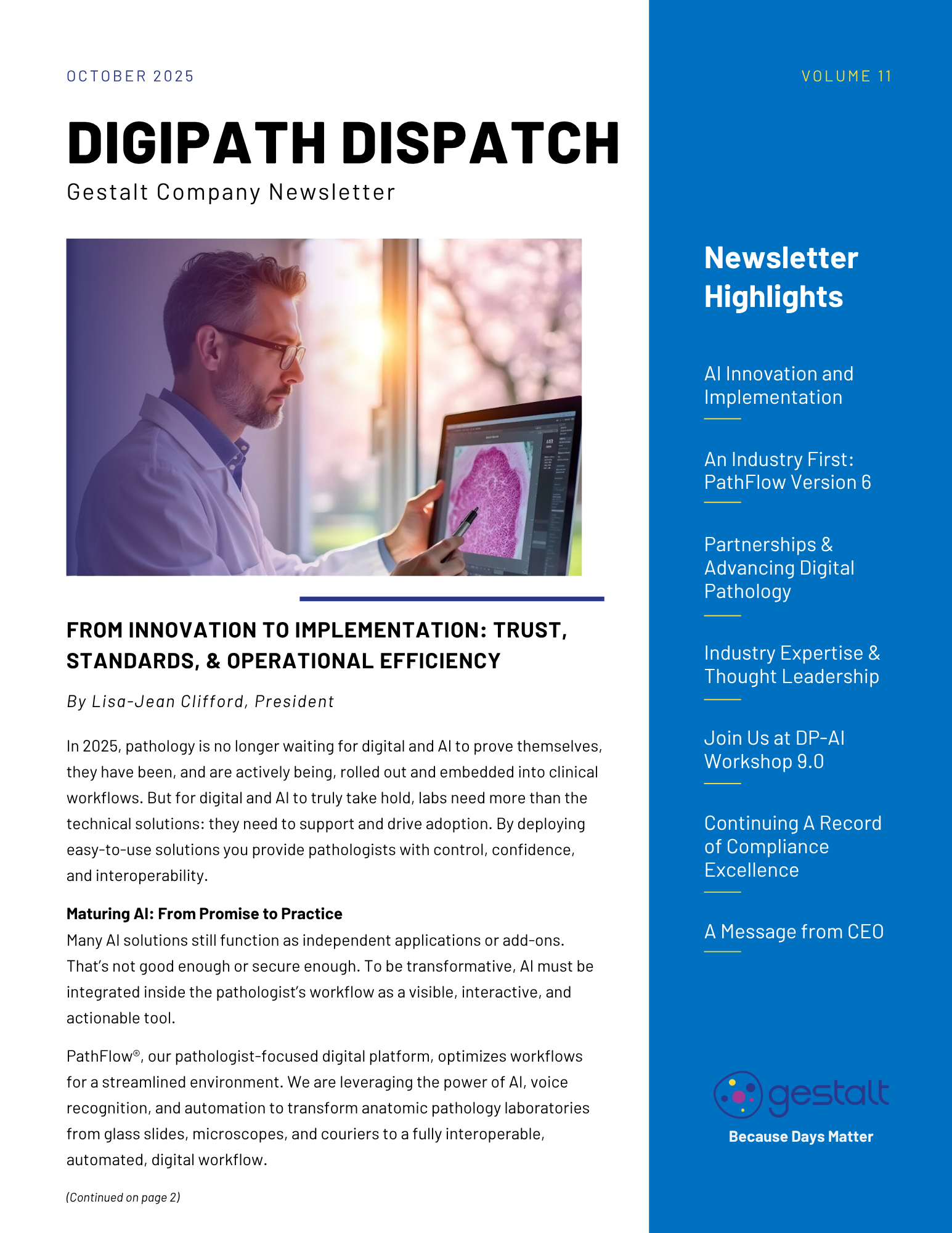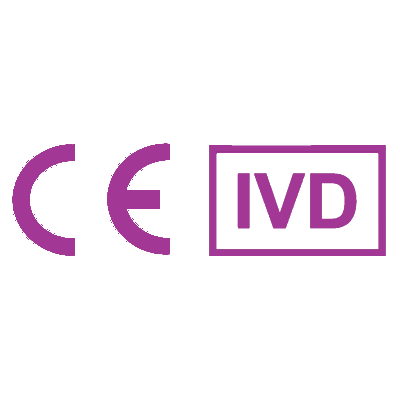No Lab Has a Closet Full of Tests For a Yet-to-be-discovered Infectious Agent
by: Dr. Monica de Baca

By now anyone with an internet connection knows that there is a new virus on the block and that we’re in the midst of a pandemic. As little as 4 months ago, no one knew of COVID-19. If the statement “No lab has a closet full of tests for a yet-to-be-discovered infectious agent” may have sounded obvious last October, these days it seems to be less obvious.
Let’s keep the timeline in perspective:
• December 31, 2019: China alerted the World Health Organization (WHO) to a cluster of patients with pneumonia of unknown cause. At that time, the virus itself was unknown.
• January 5th, 2020: China had ruled out a recurrence of SARS (severe acute respiratory syndrome virus) and by
• January 7, 2020: had identified a new virus named 2019-nCoV. As the CoV in the name suggests, this was identified as belonging to the coronavirus family of viruses. Initial diagnosis was based on genome sequencing.
• By Jan 21, 2020, several PCR assays had been developed (for example, at U. Hong Kong, China CDC).
• February 4, 2020: the US Secretary of Health and Human Services (HHS) determined that a public health emergency exists and that circumstances justify the authorization of emergency use of in vitro diagnostics for detection and/or diagnosis of the novel coronavirus (2019-nCoV). See HHS website for COVID-19 news.
• February 29, 2020: the FDA released a Policy for Diagnostic Testing in Laboratories Certified to Perform High Complexity Testing under CLIA prior to Emergency Use Authorization for Coronavirus Diseases-2019 during the Public Health Emergency.
When new diagnostic laboratory tests are developed in the “routine” setting, the process is long complex, detailed, while being scrupulously regulated and scrutinized. Clinical laboratory testing is highly regulated to ensure that tests are rationally designed, are performed as designed, that results have a meaning that is understood, are shared between labs and among providers and to generally safeguard the population being tested.
In the pre-pandemic world, developing news tests required significant review of the literature, determination of the necessity for FDA approval/clearance, evaluation of CLIA complexity status, selection of test methods, specimen types, quality and validation studies (validation studies include ascertainment of accuracy, precision, analytical specificity and sensitivity, identification of a reportable range, reference range and detection limit, establishment of interferences or co-reactions, etc.). In the case of an infectious disease, labs must have positive samples to test— until there is an isolated infectious agent that is being tested, no assay can “test positive” for that agent. Similarly, if the number of positive cases is limited, it is essentially impossible for a laboratory to have access to the body fluids, blood or tissues from which the infectious agent could be isolated.
Diagnosing an infectious disease also requires understanding the way that illness is contracted and how the body reacts to the initial infections: what is the time period between contact and the development of symptoms? At what point in this timeframe does a diagnostic test become positive? Is the presence of the infectious agent by a sensitive test always equivalent to disease? Is the newly ill patient contagious at the same time as the symptoms develop? Or even before?
With the newly released policy, the FDA is permitting a relative loosening of some of the usual methodology and regulatory restrictions routinely employed in new test design once an emergency has been recognized; it cuts through red-tape and green-lights the speedier development of novel testing.
Orchestrating the development of a new test for a new pathogen from within a newly emerging epidemic is about as hard as it gets. Yes, there are supply chain issues. Yes, there are issues of public health deployments. Yes, there are issues with national coordination. No, we haven’t figured out isolation and adequate detection. And how to get the economy back on track. And we are heartbroken about the people lost to the disease. And. And. And…… And hundreds of thousands of tests have been run for Covid-19 in the last months. For just one minute, let’s recognize the scientific and medical community for the amazing accomplishment this represents. This is not a lunar landing, this is a significantly greater achievement. Take a picture: that’s us, sitting on a new star, just 4 months after it was discovered.
When there’s a vaccine - someone may even throw us a party.
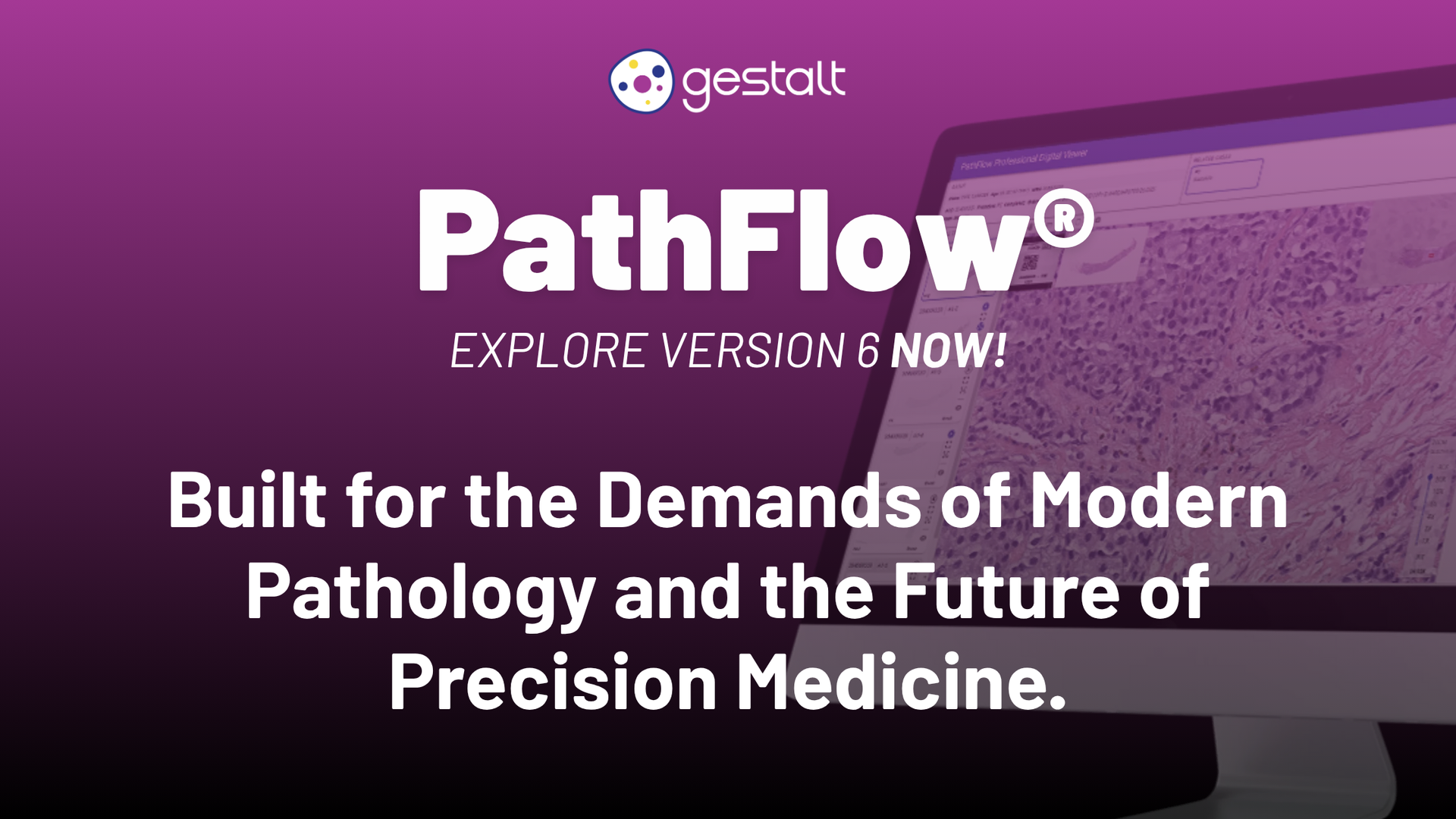
Spokane, WA, October 6, 2025 — Gestalt is proud to announce the release of PathFlow Version 6, the latest evolution of its award-winning digital pathology platform. This major update introduces a dynamic, high-powered field of view designed to elevate the diagnostic experience for pathologists, along with a dedicated tumor board workflow module that streamlines multidisciplinary collaboration, in addition to other features. PathFlow Version 6 delivers a robust visual interface that enables pathologists to navigate their images with greater precision, speed, and clarity—supporting complex case reviews and high-volume workflows without compromise. The enhanced field of view is optimized for performance across diverse specimen types, and in a manner that is familiar and comfortable to them. By providing pathologists with this embedded high-power field of view, they are able to standardize the quantitative assessment of specific cells or features within a tissue sample, which is essential for cancer diagnosis, tumor grading, and determining patient prognosis, ensuring diagnostic confidence every time. The newly developed tumor board module provides the focused workflow needs for supporting real-time collaboration across oncology teams, radiologists, and pathologists. With configurable workflows, secure data sharing, and the ability for both admins and pathologists to easily add, update and remove cases and images institutions can now conduct tumor board reviews with greater efficiency and clinical alignment. “ This release reflects our commitment to empowering pathologists with tools that not only enhance diagnostic accuracy but also foster meaningful collaboration, ” said Lisa-Jean Clifford, President of Gestalt Diagnostics. “ PathFlow Version 6 is built for the demands of modern pathology and the future of precision medicine. ” PathFlow V.6 is available immediately to existing customers and new partners seeking scalable, interoperable digital pathology solutions. It is being featured during DPA’s Pathology Visions Conference in San Diego this week. Come to booth #600 for a personalized demonstration. Not going to Visions? Reach out for more information. -- About Gestalt Gestalt transforms pathology through an intelligent, configurable, vendor-neutral, and AI-driven digital workflow that provides true interoperability enabling pathologists to diagnose diseases faster and more efficiently. Our PathFlow solution consists of professional, education, and research modules for ease of mixing and matching the digital needs of your facility in a single solution, freeing pathologists from tedious, repetitive, and manual tasks, allowing them to focus on their expertise – providing invaluable experience where it matters most. To learn more, visit www.gestaltdiagnostics.com and follow @Gestalt on LinkedIn
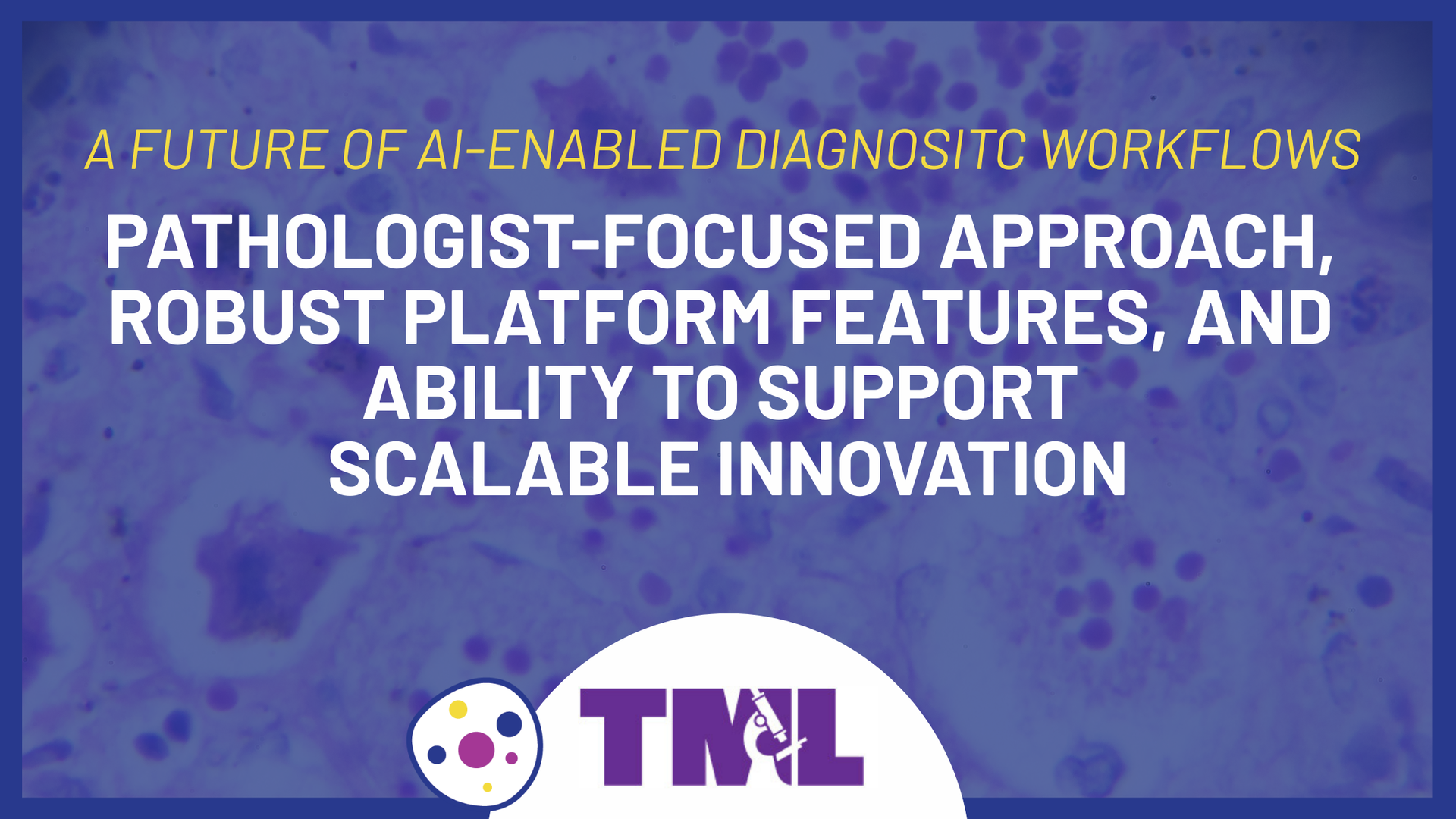
Spokane, WA – October 2, 2025 — Gestalt, a leader in digital pathology and AI-driven laboratory solutions, is proud to announce that Tulsa Medical Lab (TML) has selected PathFlow®as their digital pathology solution, marking a major step forward in the lab’s strategy to streamline operations, enhance diagnostic accuracy, and accelerate the adoption of AI-driven workflows. With this partnership, TML aims to unify its diagnostic process across multiple laboratory information systems, enabling pathologists to access all of their cases through a single login and in one consolidated worklist. The implementation of PathFlow will also give TML access to integrated AI tools designed to support efficiency and accuracy throughout the diagnostic process. “ Gestalt is one of the best vendors I've ever worked with in my 20+ years as a pathologist, ” said Dr. Anne V. Herdman Royal, Managing Partner, TML. “ They are honest, clear in delivering on their goals and promises, and they are genuinely interested in improving the ease and efficiency of the pathologist's digital pathology experience. ” Tulsa Medical Lab selected Gestalt for its pathologist-focused approach, robust platform features, and ability to support scalable innovation. The lab’s long-term goal is to create a “one-stop shop” digital-based system that streamlines access to all pathology cases, empowering its team to work more collaboratively and efficiently while laying the foundation for future AI-enabled diagnostic workflows. “ We are proud to partner with Tulsa Medical Lab as they take this important step toward digital transformation ,” said Lisa-Jean Clifford, President of Gestalt Diagnostics. “ Their vision for a unified, pathologist-centered digital environment aligns closely with our mission to deliver scalable, interoperable solutions that improve diagnostic efficiency and patient care. ” Through this collaboration, Gestalt continues its commitment to transforming laboratory workflows by providing innovative technology, strategic partnerships, and purpose-driven solutions that advance healthcare outcomes worldwide. About Gestalt Gestalt transforms pathology through an intelligent, configurable, vendor-neutral, and AI-driven digital workflow that provides true interoperability enabling pathologists to diagnose diseases faster and more efficiently. Our PathFlowTM solution consists of professional, education, and research modules for ease of mixing and matching the digital needs of your facility in a single solution, freeing pathologists from tedious, repetitive, and manual tasks, allowing them to focus on their expertise – providing invaluable experience where it matters most. To learn more, visit www.gestaltdiagnostics.com and follow @Gestalt on LinkedIn About Tulsa Medical Laboratory Tulsa Medical Laboratory is a CAP-accredited, independently owned anatomic pathology group serving physicians, clinics, and hospitals throughout Northeastern Oklahoma. The laboratory provides a comprehensive range of diagnostic services, including histopathologic evaluations, cytology interpretations, bone marrow examinations, clinical consultations, blood bank services, peripheral blood and other body fluid smear consultations, and frozen section evaluations. Dedicated to delivering accurate, timely, and patient-centered care, Tulsa Medical Laboratory combines deep expertise with a commitment to quality, innovation, and collaboration. All of which are advancing the practice of pathology and improving healthcare outcomes for the communities it serves.
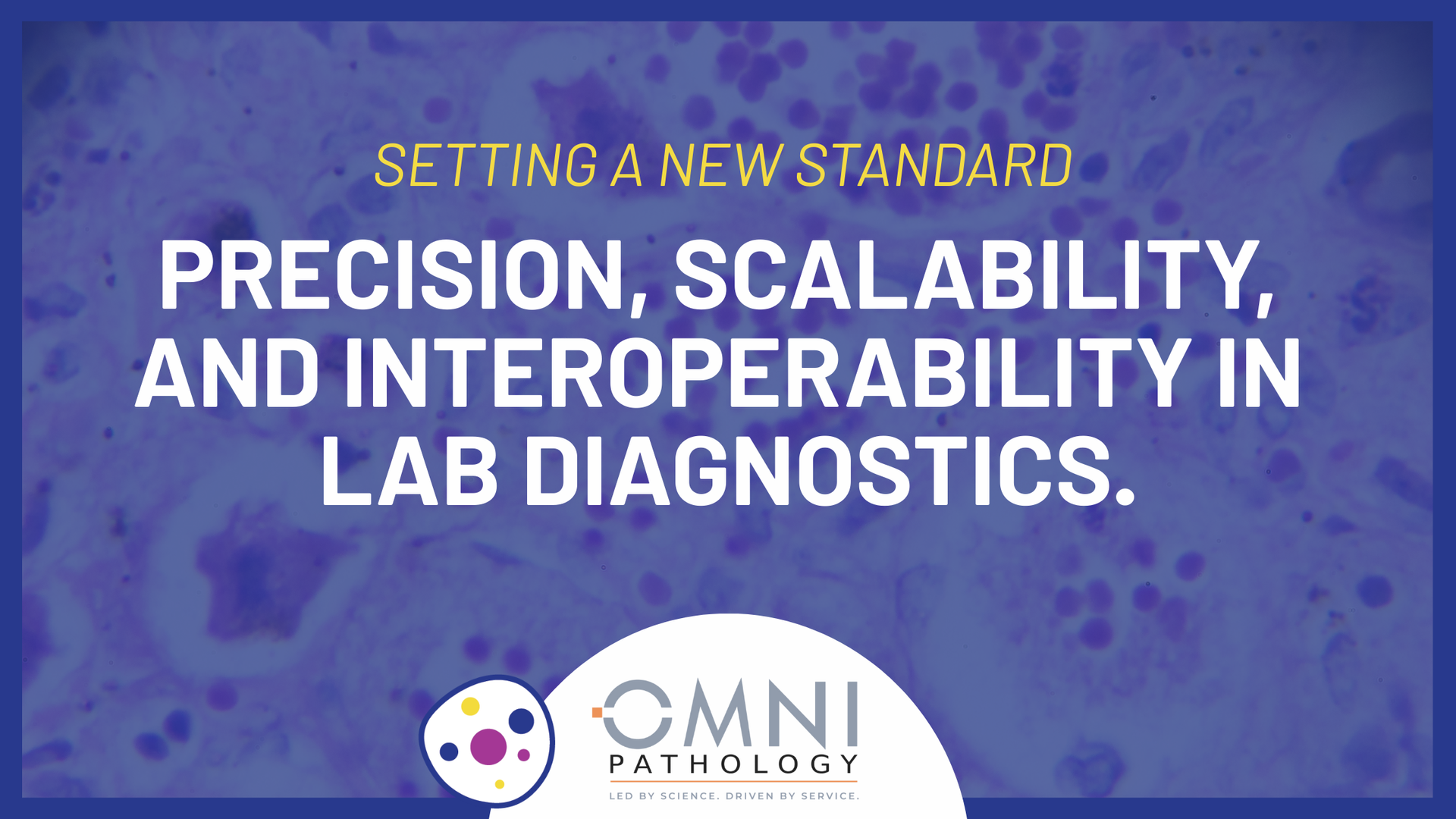
Spokane, WA – October 1, 2025 — Gestalt, a leader in digital pathology and AI-driven laboratory solutions, is proud to announce that OmniPathology, a high-complexity independent pathology laboratory has selected their digital solution, PathFlow. This partnership marks a significant step forward in transforming diagnostic workflows through leading-edge technology, operational excellence, and a shared vision for global impact. By integrating Gestalt’s award-winning digital pathology platform with OmniPathology’s advanced molecular and anatomic pathology services, the two organizations are setting a new standard for precision, scalability, and interoperability in laboratory diagnostics. The collaboration will streamline case management, accelerate turnaround times, and enhance diagnostic accuracy—delivering measurable improvements for clinicians and patients alike. “ At Gestalt, we believe innovation must be paired with purpose ,” said Lisa-Jean Clifford, President of Gestalt. “ Our partnership with OmniPathology is not only about elevating laboratory performance—it’s about laying the groundwork for diagnostic access in underserved communities around the world. ” OmniPathology’s commitment to excellence and patient-centric care aligns seamlessly with Gestalt’s mission to modernize pathology through open, scalable platforms. Together, the organizations will explore initiatives aimed at extending digital diagnostic capabilities to regions with limited healthcare infrastructure, leveraging AI and cloud-based technologies as learning and teaching tools to bridge gaps in care. “ At OmniPathology, our commitment to innovation goes beyond adopting new tools. It’s about shaping the future of diagnostics. Partnering with Gestalt allows us to combine their world-class AI capabilities with our best-in-class leadership in GI pathology, creating powerful synergies that will enhance precision, efficiency, and improve outcomes for patients, ” said Dr. Mohammad Kamal, Founder and CEO of OmniPathology. “ Together, we see tremendous opportunities to advance pathology, accelerate discoveries in clinical research, and make a meaningful impact on global health. ” The partnership underscores both organizations’ dedication to innovation, education access, and continuous improvement—setting the stage for broader industry adoption and meaningful global health outcomes. About Gestalt Gestalt transforms pathology through an intelligent, configurable, vendor-neutral, and AI-driven digital workflow that provides true interoperability enabling pathologists to diagnose diseases faster and more efficiently. Our PathFlow solution consists of professional, education, and research modules for ease of mixing and matching the digital needs of your facility in a single solution, freeing pathologists from tedious, repetitive, and manual tasks, allowing them to focus on their expertise – providing invaluable experience where it matters most. To learn more, visit www.gestaltdiagnostics.com and follow @Gestalt on LinkedIn About OmniPathology OmniPathology is a leading gastrointestinal pathology and advanced molecular diagnostics laboratory based in Pasedena, Calif. The company delivers academic-level, state-of-the-art pathology services and cutting-edge molecular testing with expertise in infectious disease, cancer diagnostics, and proprietary assay development. Committed to innovation, quality, and precision, OmniPathology partners with clinicians worldwide to improve patient outcomes through accurate, timely, and advanced diagnostic solutions. Learn more at www.omnipathology.com
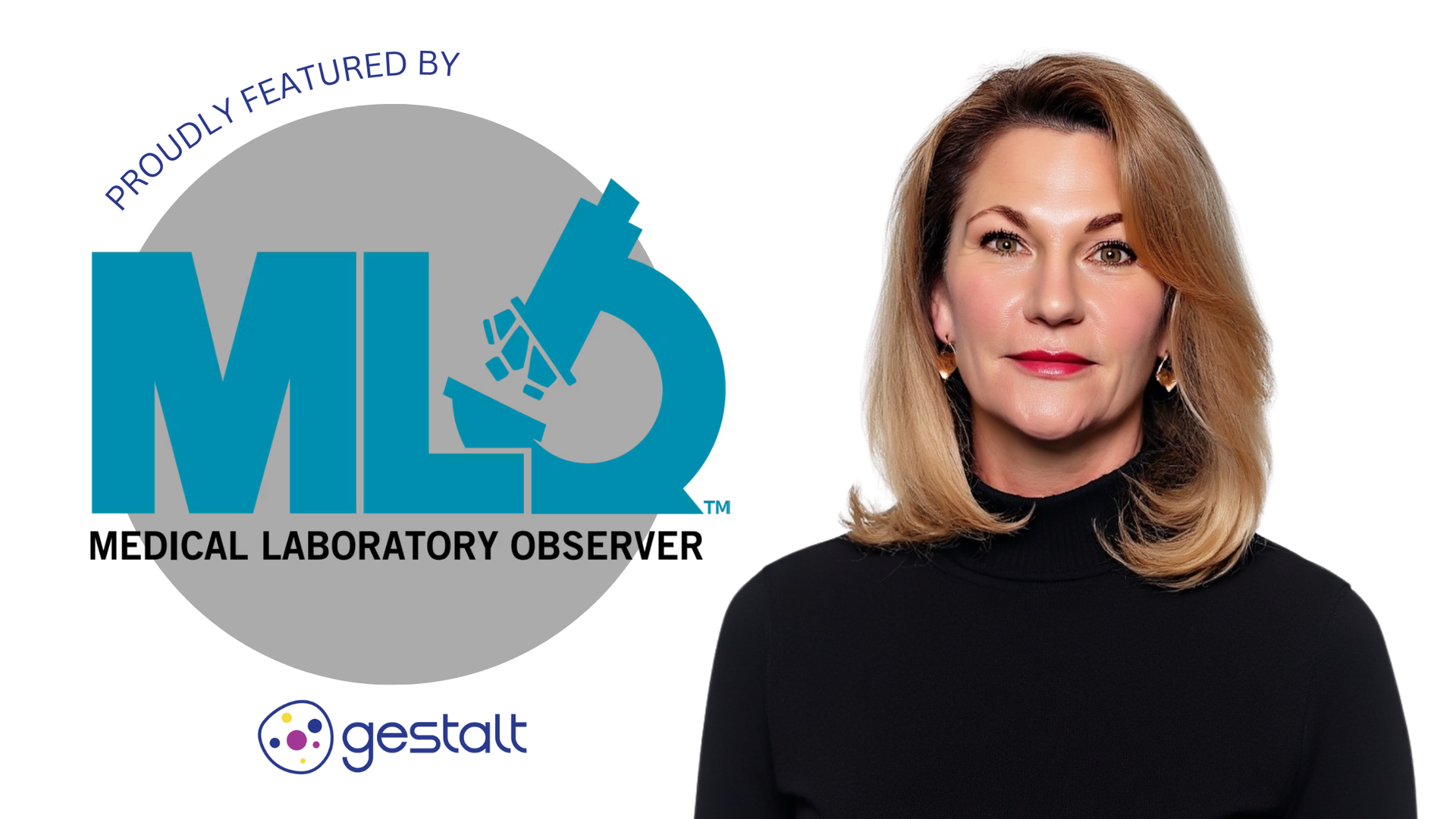
Featured in Medical Laboratory Observer - MLO, September 2025 Written by Lisa-Jean Clifford, President, Gestalt Fast, accurate diagnosis of men’s most pressing health issues can dramatically improve outcomes, reduce treatment complexity, and enhance overall quality of life. By identifying conditions early—from heart disease to cancers—clinicians can initiate timely interventions that save lives, preserve function, and lower long-term healthcare costs. Of these conditions, all but diabetes and unintentional injury are most often being diagnosed, and treatment plans being determined, based upon information coming from the laboratory. Although, diabetes can lead to health problems that would also land in the direct purview of the laboratory as well. So, let’s dive into each of these a bit. Lung cancer Men are more likely to be diagnosed with lung cancer and less likely to survive it compared to women. The rate of new cases in 2019 was 23% higher in men than women (59 versus 48 per 100,000, respectively), and the five-year survival rate was 39% higher among women than men (30% versus 21%, respectively).1 Skin cancer Skin cancer is the most common of all human cancers. About 1 in 5 Americans will get some type of skin cancer in their lifetime, and more than two people die of skin cancer every hour in the United States. Skin cancer affects people of all skin colors. There are three major types of skin cancers: basal cell carcinoma, squamous cell carcinoma (SCC), and melanoma. The first two skin cancers are grouped together as nonmelanoma skin cancers.2 Colorectal cancer By 2030, cases of colorectal cancer in people under 50 are expected to double.3 The death rate from colorectal cancer for people ages 20 to 54 rose between 2004 and 2014. Before then the death rate had been going down (American Cancer Society). Most people under 50 with colorectal cancer do not have a family history of the disease (American Cancer Society). Black people of all ages, including young adults, are more likely to get and to die from it than any other group. Colon and rectal cancers are both cancers of the intestine. However, their treatments are quite different. Colon cancer Colon cancer is the third most common type of cancer in the United States. However, it is also one of the most curable, and survival rates have been increasing over the past several years. Awareness and early detection are key—colon cancer can often be caught in its early stages, when treatment can be most effective. There are several different ways to test for colon cancer. After reviewing clinical history and doing a basic medical exam, a physician will most likely perform a colonoscopy. Treatment often involves surgery, chemotherapy, and/or radiation. Rectal cancer The rectum sits in a tight space in the body, narrowly separated from other organs and structures in the pelvic cavity. As a result, complete surgical removal of rectal cancer is challenging and complex There are several different ways to test rectal cancer. The most common path for diagnosis will include an ultrasound to see how far through the rectal wall a cancer has grown and a colonoscopy. Rectal cancer often requires more than one type of treatment and much like colon cancer usually involves surgery and a combination of chemotherapy and/or radiation treatments. However, given the complex nature of the rectum, it also often involves partial or total reconstructive surgery or will result in a colostomy bag. Testicular cancer The American Cancer Society’s estimates for testicular cancer in the United States for 2025 are: About 9,720 new cases of testicular cancer diagnosed About 600 deaths from testicular cancer The incidence rate of testicular cancer has been increasing in the United States and many other countries for several decades. The increase is mostly in seminomas. Testicular cancer is not common: about 1 of every 250 males will develop testicular cancer at some point during their lifetime. The average age of males when first diagnosed with testicular cancer is about 33. This is largely a disease of young to middle-aged men, but approximately 6% of cases occur in children and teens and approximately 8% occur in men over 55. Because testicular cancer usually can be treated successfully, the mortality rate for this type of cancer is very low: about 1 in 5,000. Artificial intelligence and machine learning: AI algorithms now analyze ECGs, imaging scans, and clinical data to flag subtle abnormalities faster than traditional methods. Predictive models can forecast disease progression and personalize follow-up intervals. Prostate cancer Prostate cancer ranks among the top cancers in men, especially those over 50. It often grows slowly, allowing many men to remain asymptomatic for years. Early and precise diagnosis of prostate cancer relies on identifying molecular signals—biomarkers—that distinguish healthy tissue from malignancy. Biomarkers guide decisions about who needs a biopsy, what treatments to pursue, and how to monitor treatment response and disease progression. Advances in molecular testing and imaging now allow clinicians to tailor care based on each man’s unique cancer profile. The role of biomarkers in prostate cancer: A biomarker is any measurable molecule in the body that reflects normal or disease processes. In prostate cancer, biomarkers can indicate tumor presence, aggressiveness, and likelihood of recurrence. Incorporating these markers into routine evaluation helps avoid unnecessary biopsies, reduces overtreatment, and pinpoints the most effective therapies for each patient. Mesothelioma Men are significantly more affected by mesothelioma, a rare type of cancer that develops in a layer of tissue that covers most internal organs. Men are over four times more likely to contract mesothelioma, because 80 percent of people with this cancer report at least one exposure to asbestos. Men over 65 who have worked in trade occupations or the military are at the highest risk for this kind of cancer. Idiopathic pulmonary fibrosis Idiopathic pulmonary fibrosis (IPF) is another type of cancer found predominantly in men — 70% of all cases. It is a disease that causes scarring of the lungs. Idiopathic means it has no known cause. IPF symptoms usually appear later in life, with most people being diagnosed over age 50. Symptoms most often include shortness of breath, a dry cough, weight loss, and fast, shallow breathing. IPF does not have a cure and is progressive but can be slowed with medication and treatment, which may also alleviate symptoms for the patient. Viruses In the laboratory, viral infections can be confirmed by multiple methods. Diagnostic virology has changed a great deal due to the increase in molecular techniques and increased clinical sensitivity of serological assays. A large variety of samples can be used for virological testing. The type of sample sent to the laboratory often depends on the type of viral infection being diagnosed and the test required. Cardiovascular disease (CVD) The diagnosis of CVD often begins with identifying clinical symptoms that may indicate underlying heart problems. While some individuals may experience obvious warning signs such as chest pain, shortness of breath, or palpitations, others may have no or atypical symptoms that impede early detection. Fatigue, dizziness, swelling in the legs, and unexplained weakness can also be indicative of cardiovascular issues. In some cases, symptoms appear only during physical exertion, while in others, they occur unpredictably at rest. Beyond traditional diagnostic tests, advanced imaging techniques have revolutionized the early detection of cardiovascular disease. Coronary artery calcium scoring performed using computed tomography (CT) helps assess the presence and extent of calcified plaques in the coronary arteries. This test is useful for identifying those who are not yet displaying symptoms of heart disease. Magnetic resonance imaging (MRI) offers high-resolution images of the heart’s structure and function, making it a valuable tool for diagnosing congenital heart disease, myocarditis, and fibrosis. Similarly, cardiac computed tomography angiography (CCTA) provides detailed images of coronary arteries, allowing clinicians to detect narrowing or blockages with high precision. Laboratory tests and biomarkers for CVD diagnosis: Blood tests play a key role in diagnosing and monitoring the progression of cardiovascular disease. High levels of cholesterol, triglycerides, and inflammatory markers such as C-reactive protein indicate an increased risk of atherosclerosis. Similarly, tests measuring levels of troponin are essential for diagnosing acute myocardial infarction. Other biomarkers, such as B-type natriuretic peptide (BNP), help assess heart failure severity, while glucose and hemoglobin A1c levels provide insights into diabetes-related cardiovascular risks. Latest advancements in the diagnosis of CVD: The diagnosis of CVD has evolved significantly with the integration of leading-edge technologies such as artificial intelligence, machine learning, and advanced imaging techniques. AI-powered algorithms now assist in analyzing ECGs and imaging scans, allowing for faster and more accurate diagnosis. Wearable devices with real-time monitoring identify irregular heart rhythms and provide early indication of heart disease. Genetic testing enables physicians to assess hereditary risks and predict cardiovascular conditions before symptoms are present. All of these advancements improve how CVD is diagnosed, leading to more personalized and proactive healthcare. Genetic testing helps in the diagnosis of CVD: Genetic testing plays a key role in identifying individuals at risk of developing cardiovascular disease. By analyzing specific gene mutations associated with inherited heart conditions, such as hypertrophic cardiomyopathy and familial hypercholesterolemia, physicians can detect heart disease before symptoms appear. Genetic profiling can also help determine an individual’s response to medications, allowing for more personalized treatment plans. Artificial intelligence improves the accuracy of diagnosis: Artificial intelligence is transforming how cardiovascular disease is diagnosed by enhancing the interpretation of medical imaging, ECGs, and patient data. AI-driven algorithms analyze large volumes of clinical data to identify patterns that can be missed by humans, leading to earlier and more accurate diagnoses. Machine learning models can also predict the likelihood of heart disease progression, enabling proactive treatment plans. AI applications in radiology help improve the detection of arterial blockages through automated image analysis. As AI continues to evolve, it will play an increasingly vital role in refining how to diagnose heart disease with greater speed and accuracy. Conclusion The power of early, accurate diagnosis results in the following: Improved survival rates : Detecting disease at a treatable stage increases survival and remission rates for cancers and chronic illnesses. Reduced treatment intensity : Early intervention often requires less aggressive therapy, sparing men from extensive surgeries or high-dose, often toxic medications. Enhanced quality of life : Preventing complications maintains physical function, mental health, and independence. Cost savings : Early diagnosis reduces hospital stays, emergency care, and long-term management expenses. The integration of biomarkers into prostate cancer care is transforming diagnostic pathways from one-size-fits-all to highly personalized algorithms. Ongoing research aims to combine biomarker profiles with advanced imaging and artificial intelligence to detect cancer even earlier and more accurately. As these tools mature, men will benefit from fewer invasive procedures, smarter treatment choices, and better long-term outcomes. Early recognition of symptoms, a thorough understanding of risk factors, and the integration of traditional and innovative diagnostic tools are reshaping men’s health in both diagnosis and care. By leveraging advanced imaging, biomarker profiling, AI analytics, genetic insights, and wearable monitoring, physicians can detect disease earlier, initiate precise treatments, and significantly improve men’s health trajectories. Proactive screening and personalized diagnostics pave the way to longer, healthier lives. REFERENCES American Lung Association. Four diseases threatening men’s lung health. Lung.org. Accessed September 3, 2025. https://www.lung.org/blog/lung-diseases-threatening-men. Ellis RR. An overview of skin cancer. WebMD. December 31, 2006. Accessed September 3, 2025. https://www.webmd.com/melanoma-skin-cancer/skin-cancer. Bailey CE, Hu CY, You YN, et al. Increasing disparities in the age-related incidences of colon and rectal cancers in the United States, 1975-2010. JAMA Surg. 2015;150(1):17-22. doi:10.1001/jamasurg.2014.1756.
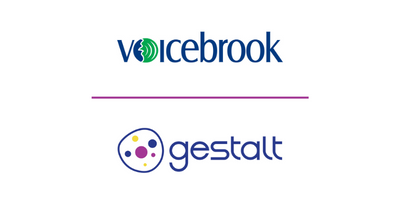
Roslyn Heights, NY, Sept. 11, 2025 -- Voicebrook, Inc., the leading provider of pathology reporting solutions, today announced a new integration with Gestalt Diagnostics, a leader in digital pathology solutions. This partnership represents the industry's first fully speech-enabled digital pathology solution, enabling laboratories to streamline workflows, reduce inefficiencies, and deliver faster, more accurate results for patients. The integration connects Voicebrook’s VoiceOver PRO reporting platform with Gestalt’s PathFlow digital pathology solution, giving pathologists the ability to control both image navigation and report creation entirely by voice. Pathologists can dictate report sections, complete CAP protocols when required, and seamlessly move between reviewing slides and capturing structured data—all without interrupting their diagnostic flow. " Pathologists face increasing demands to work faster without compromising accuracy, " said Melanie Shedd, VP of Product at Voicebrook. " This integration brings together the best of both worlds—Voicebrook’s proven reporting capabilities and Gestalt’s innovative digital pathology platform—so laboratories can deliver high-quality, CAP-compliant reports more efficiently. " With the combined solution, pathology teams benefit from: Seamless Workflo w: Direct integration between digital slide management and reporting. Efficiency Gains : Voice-enabled navigation and data capture reduce manual entry and workflow disruptions. Flexibility : Support for both narrative reporting and CAP protocols, tailored to any lab’s needs. Improved Collaboration : Enhanced ability for pathologists to share insights and finalize cases quickly. " Gestalt’s mission is to empower pathologists through digital innovation, " said Gestalt’s President, Lisa-Jean Clifford. " Our integration with Voicebrook aligns perfectly with that vision—giving labs a solution that is both powerful and easy to use. " The Voicebrook–Gestalt integration is available now, for laboratories seeking to enhance their digital pathology and reporting capabilities. ### About Voicebrook: Founded in 2002, Voicebrook is the leading provider of reporting solutions for pathology, with approximately 3600 users at 500 sites worldwide. The company’s VoiceOver PRO and SynoptIQ software applications allow pathology professionals to rapidly and accurately create pathology reports. VoiceOver PRO incorporates speech recognition, digital dictation, customizable templates, CAP eCP, and an assortment of input devices, providing direct integration with the user’s Anatomic Pathology (AP) system. SynoptIQ is a full-featured eCP solution solely focused on CAP cancer reporting. Learn more at www.voicebrook.com About Gestalt Diagnostics: Gestalt Diagnostics transforms pathology through an intelligent, configurable, vendor-neutral, and AI-driven digital workflow that provides true interoperability enabling pathologists to diagnose diseases faster and more efficiently. The company's PathFlow® solution is a cloud-based digital pathology enterprise platform that can easily be customized based on your specific preferences. The platform consists of professional, education, and research modules for ease of mixing and matching the digital needs of your facility in a single solution, freeing pathologists from tedious, repetitive, and manual tasks allowing them to focus on their expertise, providing invaluable expertise where it matters most. To learn more, visit www.gestaltdiagnostics.com
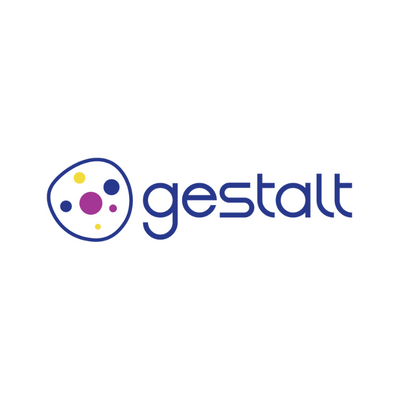
With the focus on digital pathology adoption around the globe today, efficiency and accuracy are an expected advantage for deployments in pathology labs of all sizes and types. With the continued advancement of these technologies, solutions like PathFlow and its lighter version, PathCloud, are revolutionizing the way pathologists manage their workflows. With PathFlow and PathCloud’s robust cloud-based capabilities, you have secure access your cases and images anywhere and anytime. With it truly interoperable infrastructure, PathFlow provides streamlined access, routing, and tools directly within the pathologists workflow. Pathology is becoming more in demand, case loads are increasing, pathologist availability is decreasing and the prediction for the number of new patients being diagnosed are all adding strain to the laboratory and the physicians. With a purpose designed infrastructure, PathFlow is made to decrease the manual workload and increase workflow optimization. PathCloud, the cloud-based lighter application to PathFlow, helps ensure pathologists can have access to tools and data from virtually anywhere on the globe in a cost effective, low footprint entry point to digital pathology. PathCloud’s secure environmen delivers real-time access to high-quality images and your case information. Both applications provide enhanced security and efficiency for your peace of mind.
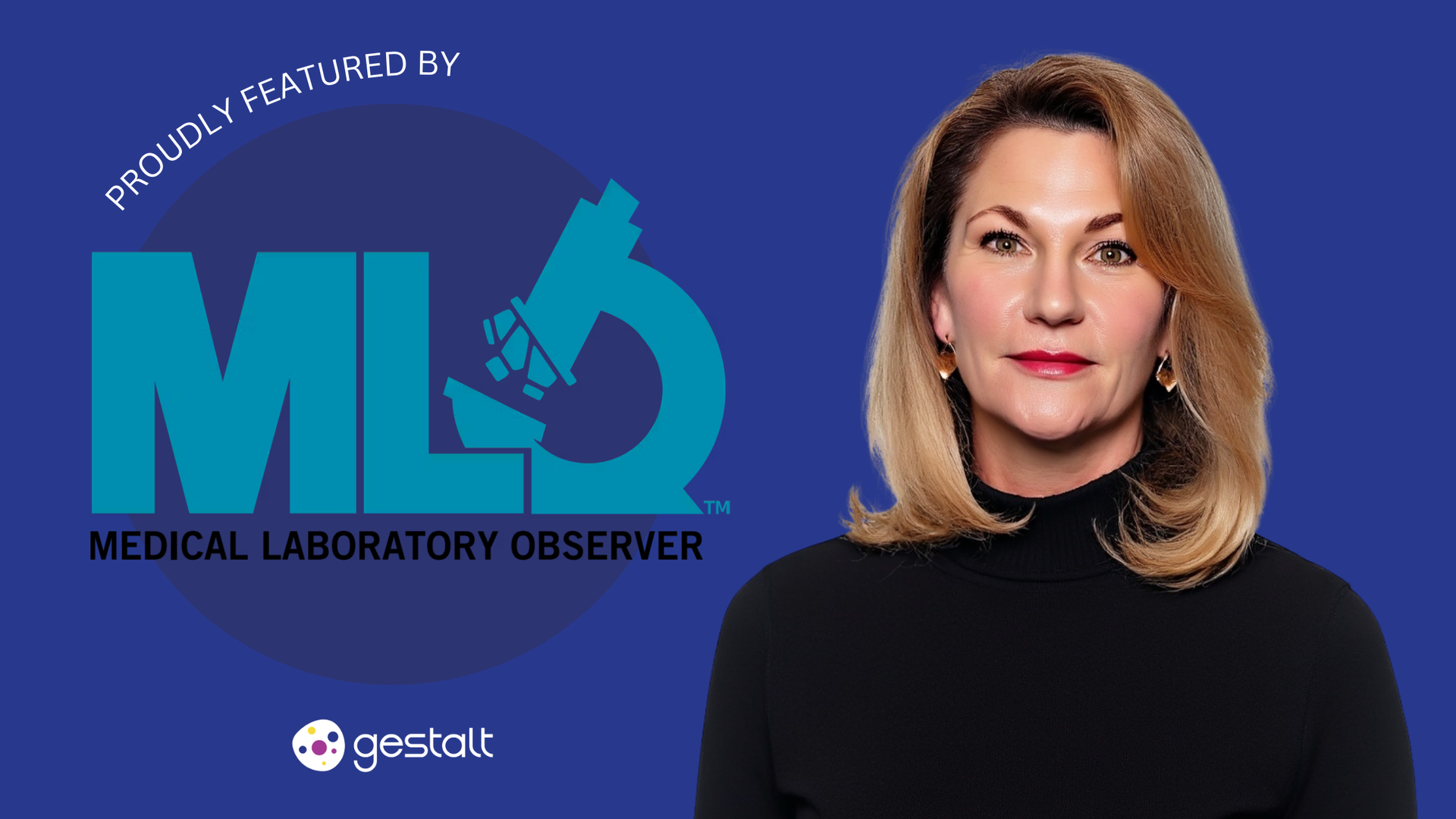
Featured in Medical Laboratory Observer - MLO Written By Lisa-Jean Clifford, President, Gestalt Planning is Essential As digital pathology and artificial intelligence (AI) continue to transform diagnostic medicine, laboratories find themselves at a timely and critical juncture. These technologies are not simply enhancements, they represent a fundamental shift in how clinical images and data are managed, routed, shared, viewed, interpreted and presented to pathologists. Laboratories that wish to remain at the forefront of innovation must evolve beyond traditional automation and digitally replicating their manual workflows. Instead, the lab who successfully implements these solutions must carefully evaluate its technical infrastructure to accommodate complex, image-centric workflows, multi-source data integration, and AI-assisted analysis. This evolution requires careful analysis and review of platforms that not only handle high-resolution whole slide images (WSIs), but also enable interoperable communication across diverse systems—such as scanners, LIS’s, EMR’s, EHR’s, and archives—using both native file formats and standardized protocols like DICOM. Successful implementation of digital pathology and AI depends upon a robust informatics ecosystem that supports interoperability and real-time data exchange between your applications. These include information that will be displayed in your viewer such as WSI’s, structured annotations, snapshots, AI overlays and results outputs but also includes patient specific case information like you traditionally see in your LIS. These tools must be securely embedded within workflows, ensuring compliance with privacy regulations, while remaining scalable for multi-site deployments. And, this transformation is not solely technical. It requires training and cultivating a digitally fluent workforce, with training initiatives that enable pathologists, lab (and scanning) technicians to navigate the components of the process seamlessly and accurately. Assess current infrastructure preparedness Before implementing new technologies, it’s essential for laboratories to assess their existing systems and infrastructure. This includes evaluating scanner compatibility, data storage capabilities, and network bandwidth to ensure readiness for high-volume imaging, robust case routing and AI integration. Understanding what's already compatible and supports this initiative can help identify gaps, avoid redundant investments, and lay the foundation for seamless upgrades. A thoughtful audit sets the stage for informed decisions and smoother transitions into digital pathology and automation. Key considerations include: Scanner selection – Do you already have scanners in place? If so, are the digital solutions you are evaluating compatible with all of them? Do the scanners fit the needs of your organization in terms of volumes, speed and quality of scanning, redundancy? Are they dated or current in terms of the technology? If they aren’t, or you don’t have scanners these are all items to consider in your evaluation and acquisition of scanners. Keep in mind that the better digital platforms will support multiple scanner brands and models, enabling you to mix and match the scanners that best suit your organizations needs. Information Management System(s) – Is your LIS/EMR/EHR interoperability ready or compatible? Is it an older, legacy system that will have limitations or challenges with being able to send and receive real-time data messages through standard methods of integration? Can your digital solution providers help bridge any of these gaps or do they have ways they can work around them in order to provide a seamless workflow for your pathologists and your technologists? If your information system or “source of truth” for the patient is current and easy to integrate with other solutions, do you have one or multiple you are looking to integrate with? Are you a multi-site entity or single location with one LIS or one version of that LIS? All of these are points to consider when determining: 1. Which digital solution you select; and 2. If there are other infrastructure changes you need to make to ensure that your applications are able to speak to each other effectively. Network Bandwidth – Most robust digital solutions today are web-based, as is the storage for these large images. It is essential to understand what your current network supports and to plan to make modifications prior to implementing a digital platform. Speed and performance are a huge factor in the successful usage and adoption of your platform. Most digital solutions are going to be optimized for performance, but internet and network bandwidth are two things that no vendor can account for. There are certainly things like load balancing and viewer performance that are important parts of the development and tuning process of vendors, however, providing the proper bandwidth and connectivity is something that the lab – or your IT department – will need to plan on. Storage options – Preplanning is an important step here as well. Knowing whether you are going to archive all of your images or some of your images and for what amount of time is a key consideration. Also understanding your options and selecting the one (or two) that are right for you is important. Are you planning to store locally/onsite? In the web? Does your digital solution provider offer both short – and long-term storage? Are you looking to use one of the large storage vendors (Google, AWS, Azure)? Understanding the price difference between these options, and if your digital solution provider can integrate bi-directionally with them is also a fundamental consideration. On this note – any decision you make in this category can be easily changed. Configure for Interoperability A successful digital pathology deployment depends upon integration, real-time data exchange and true interoperability. Support for image formats – Enables streamlined viewing, image sharing and best of breed selection for your organization across platforms. Are you looking to integrate your other ‘ologies’ and have a cross patient perspective by being able to collocate radiology and pathology images? If so, you also need to ensure that your systems support DICOM and integration with VNRs. Open APIs and HL7 – Enable seamless connectivity with LIS, AI algorithms, other lab applications and modules, and advanced analytics platforms Vendor-Neutral solutions – Avoid vendor lock-in by selecting digital platforms that offer interoperable viewers, databases, workflows and reporting. Choose AI vendors and algorithms that align with your needs AI algorithms should be carefully considered and evaluated to ensure that you address your specific clinical needs rather than adopt them as generic tools. Successful integration requires a thoughtful alignment by your digital pathology solution and the AI vendor. Those who have formed partnerships have put a great deal of thought and technical evaluation into the integration between the capabilities of their AI outputs and the digital workflow and visual representation to the pathologist. Whether it's assisting with tumor detection, streamlining case triage, or supporting specific diagnosis and cancer grading, AI solutions should be targeted to enhance clinical workflows and improve decision-making. By integrating AI deployment directly within your digital platform’s viewer, you are enabling your workflow to be grounded in the realities of patient care and operational demands, ensuring that laboratories can have a meaningful impact, increased efficiency, and better outcomes. Modernizing your lab’s infrastructure isn’t a single upgrade—it’s a strategic transformation. By focusing on compatibility, clinical utility, and scalable systems, labs can future-proof their operations and unlock the full potential of digital pathology and AI.
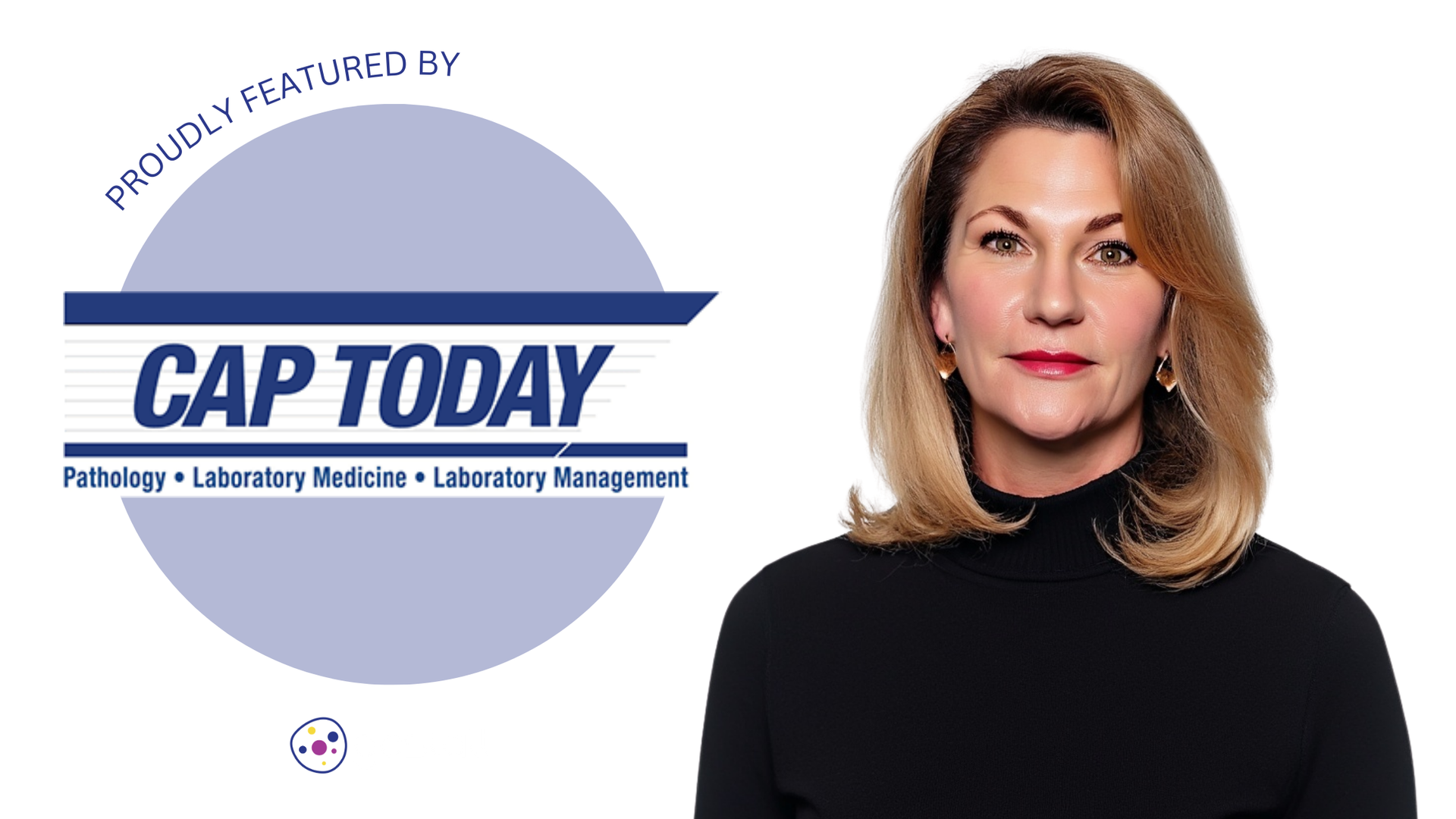
Featured in CAP TODAY Written By Lisa-Jean Clifford, President, Gestalt The length of time to install digital pathology equipment, interface, implement, train, and go live in 10 large laboratories ranged from under one year to about 18 months, and the time spent prior to that—evaluating options, gaining budget approval, making decisions, and completing the contract and negotiation process—took eight months to a year for seven of the 10. For two others, the evaluation, decision-making, and contracting process took about 18 months, and for one it took five years, largely owing to pandemic-related delay. These are some of the findings that came from interviews with 10 of the largest laboratories that have adopted digital pathology in the United States, conducted by Lisa-Jean Clifford, president of Gestalt Diagnostics. She presented her findings at the Executive War College meeting in April. Clifford offered the laboratories the choice to remain unnamed. Of the 10, five agreed to be named: Alverno Laboratories, Intermountain Health, Labcorp, Memorial Sloan Kettering, and Sonic Healthcare. Two laboratories started on their path to digital pathology in 2004 and 2007, and eight started between 2015 and 2019. The aforementioned timelines the labs shared did not include the lengthy time spent before that deciding who among the laboratory staff and leaders would participate in the decision-making and seek approvals, determine what the organizational requirements were, develop the request for proposal, and determine which vendors would participate in the RFP. Several factors explain the variation in the timelines, she said, among them the differing time frames, experience, and ability of the IMS vendors to interface; the availability of LIS, EHR, and other vendors and their resource availability to support the interfacing and implementations; and the number of the lab locations and complexity of the organizations’ workflows and whether the organizations went live with artificial intelligence. The pandemic interrupted the process for two other labs, though they lost less time. Five of the laboratories accelerated their process during the pandemic. The two early adopters reevaluated their solutions and changed vendors when their existing contracts expired. “Both found that early technology was not as interoperable or adaptable to interfacing as they needed them to be,” Clifford said, calling it an artifact of the technology available at the time or attributing it to a lack of understanding of how the digital use cases would evolve once an organization deployed. Most of the 10 labs started with a single type of use case or workflow and then expanded once that use case or workflow had been mastered internally, Clifford said. Noting that IMS vendors vary in the modules or workflows they support, she reported that all 10 labs were using their IMS for clinical workflows. Eight were using their IMS for primary diagnosis and tumor boards, four supported resident workflows, two were for molecular work, and five labs were also using it for research. “Only one was actively using their digital IMS vendor for consults,” Clifford said. “Ninety percent were performing consults manually or outside their LIS and IMS.” The current state of digital pathology adoption in these 10 labs is not where any of them plan to remain, she said. Three of the labs did not disclose their percentage of adoption and case volumes; one lab disclosed that it is at 80 percent adoption but did not share its case volume. Of the six labs that disclosed case volumes and percentage of adoption, the three with the largest case volumes were at less than 10 percent of overall adoption. “The three laboratories with the overall lowest case volumes were at the highest rate of adoption,” Clifford said, “with one at 80 percent and two at 100 percent.” Among the barriers to adoption the labs cited, IT was the biggest, with all 10 labs saying “they had issues in their IT processes for one reason or another,” Clifford said. Slide quality was another barrier, with the problems being the quality of the glass slides or of the scans. Cost was a third barrier, though it was not the cost of the IMS, she said, but of “the scanners and image storage for the organizations that wanted access to the stored images indefinitely.” Two of the labs that cited pathologist resistance as a barrier said some of the resistance was a belief that the digital workflow was slowing pathologists down. One of the labs did an internal study in which they showed that by going digital, in three to six months (four months on average), “pathologists were faster on digital than on glass,” Clifford said. All 10 labs said they realized benefits from adopting digital pathology, and the benefit-related categories were rated at high levels in terms of their realization. They are better patient care, turnaround time, specialty routing, no shipping of glass, workload balancing, and being able to instantly move cases to where the capacity is. AI is the only benefit category that was rated as a low realization, “not reflected in the perceived value of the benefit,” Clifford said, “but in the number of laboratories that had adopted AI,” which was half (with four using it for primary diagnosis). Of those that had not yet adopted AI, she said, “they understand this is the future, and they recognize that this is the way the industry is moving. They’re just not there yet.”

By Maarion Napora At Gestalt, we understand the role of education for physicians and why it is important to have a focus specifically on pathology. It is our goal to provide the proper digital tools and platforms for pathologists to learn how to use the latest technology in their training. PathFlow ’ s Education Module provides academic medical centers and residency programs with leading tools and digital technology to train the next generation of pathologists. Designed to meet the demands of modern techniques, the module offers the ability to develop courses, easily clone and copy courses, and assign teaching lists, images, and tests. You can set the timing for a course, automatically send out messages to remind students of outstanding courses and test deadlines, etc. We support multiple forms of media, including videos, PowerPoint presentations, and word documents. These enable educators to deliver immersive, digital-first learning experiences. The PathFlow Education Module Revolutionizes pathology training by providing a unified platform for interactive learning. Trainees can access a comprehensive library of annotated digital slides, practice diagnosing complex cases, and receive real-time feedback. Professors can easily grade, provide comments and feedback on assessments, and can even assign certificates. The module’s credentialing management capabilities streamline competency assessments, notifications for deadlines, and reminders if not completed, ensuring residents meet rigorous standards while tracking progress seamlessly. We believe education and access to leading technology is the cornerstone of advancing pathology. With PathFlow’s Education Module, we’re empowering academic programs to train confident, tech-savvy pathologists, who will lead the field forward with current skills in available technology informatics.

